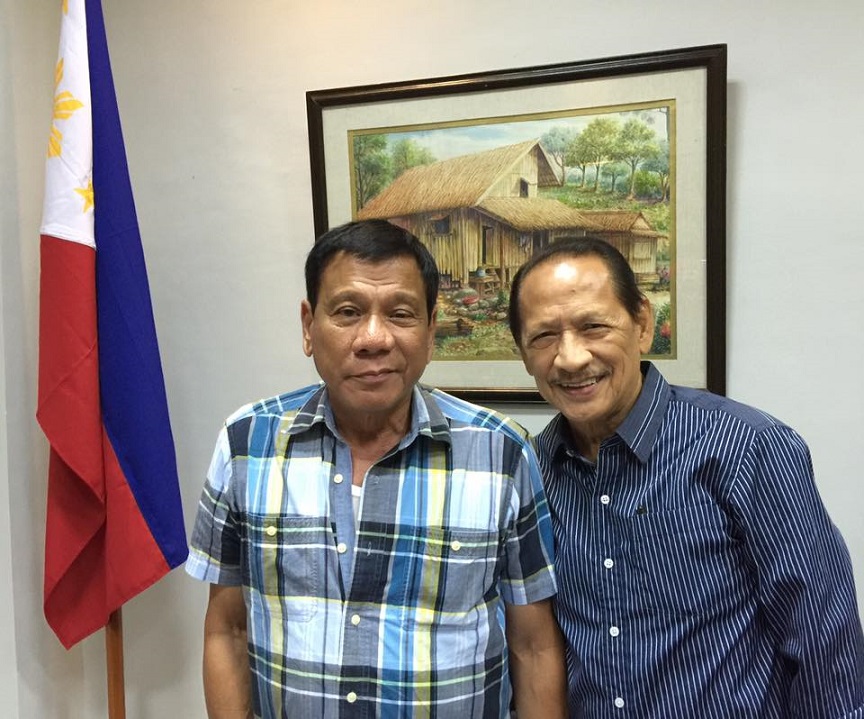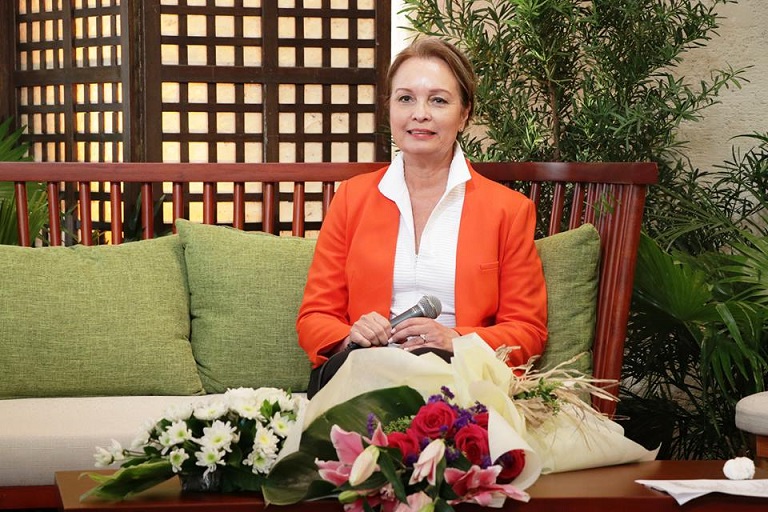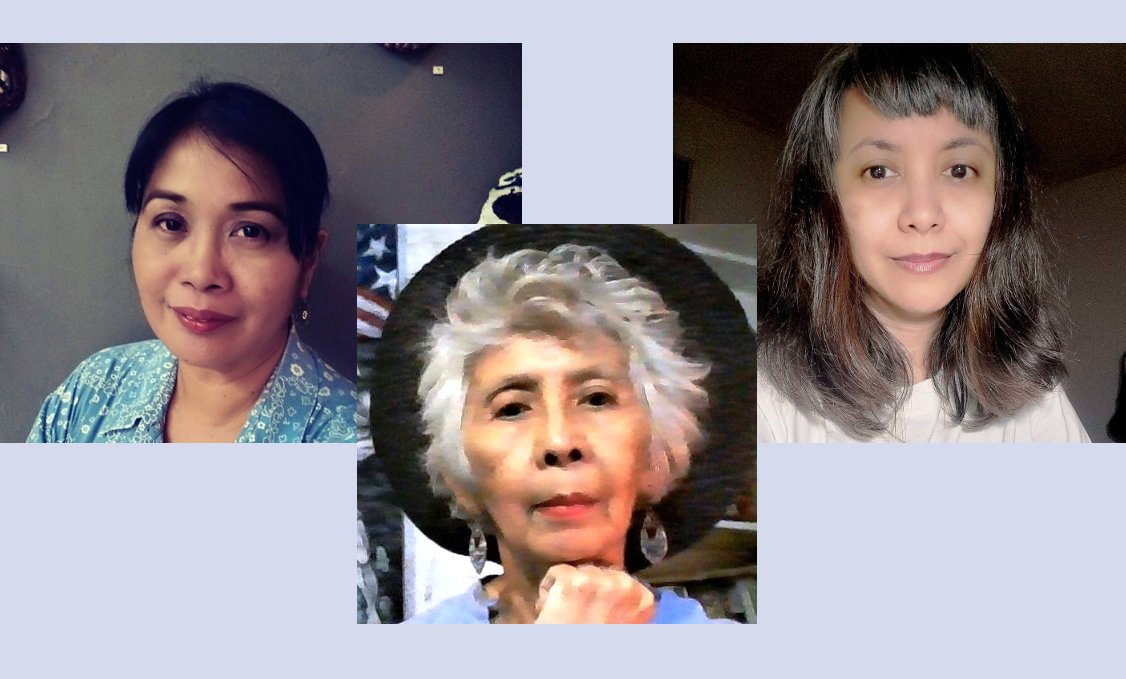By PABLO A. TARIMAN
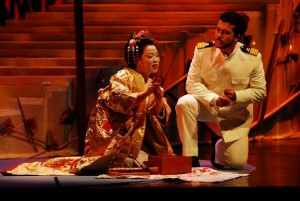 THE moribund opera climate in the country brightened up anew with the recent staging of Puccini’s Madama Butterfly at the CCP with a fairly good international cast.
THE moribund opera climate in the country brightened up anew with the recent staging of Puccini’s Madama Butterfly at the CCP with a fairly good international cast.
The Cio Cio San (Mako Mishimoto) is from Japan, the Lt. Pinkerton (Dante Alcala) is from Mexico, the Suzuki (Camille Lopez Molina) and Goro (Lemuel de la Cruz) are from the Philippines with a conductor (Lim Yau) coming from Singapore.
The Suzuki of Lopez-Molina was a stand-out singing and acting the part with poignant result, the Sharpless of Fernando was an excellent showcase of good singing and acting while De la Cruz as the marriage broker and Jun Jaranilla as the Imperial Commissioner did perfect justice to their parts.
Dante Alcala proved to be a dashing Pinkerton and his Act II aria, addio fiorito asil, revealed a tenor of international caliber.
As for the Cio Cio san of Mishimoto, she was indeed visually perfect for the part but her signature aria, Un bel di vedremo, didn’t quite evoke the dramatic and soulful nature of this much-awaited number. But she was arresting in the suicide scene in her dramatic finale number, Con onor muore (“To die with honor”).
Conductor Lim Yau was fairly competent and the UP Manila Chorale did a fairly good job of blending well as an ensemble.
In the early 80s, Filipino audiences saw the Cio Cio San of Israeli soprano Atarah Hazzan (a last-minute replacement for the indisposed Japanese soprano Yasuko Hayashi) and in the 90s, the excellent Butterfly of the late soprano, Yoko Watanabe.
The only known Filipino Butterfly was soprano Luz Morales with the Pinkerton of tenor Aristeo Velasco. Another Filipina, the Toronto-based Eleanor Calbes also sang Butterfly in Canada, her last operatic role.
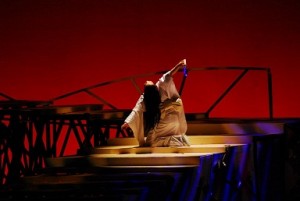 The most arresting feature of this recent Butterfly is the unique concept of the director, Anton Juan, who transported the opera’s setting into a period closer to the country’s history.
The most arresting feature of this recent Butterfly is the unique concept of the director, Anton Juan, who transported the opera’s setting into a period closer to the country’s history.
The director cited the events immediately before World War II when the American considered the Philippines as important to their Asia-Pacific agenda; it was then that the discovery of the Atomic Bomb led to the bombing of Hiroshima and Nagasaki. “I locate this (Butterfly) romance within this time framework and context. It is, after all, the tragedy of love colonized versus pure love, of honor versus love and passion. And clash of religion and culture.
Juan likes to think that the Butterfly heroine, Cio Cio-San, is reflection of gullible Filipinas who think of American husbands as the answer to their economic predicaments.
Pointed out Juan: “We still see the images of women thinking that their economic salvation lies in the hands of the foreigner bringing them to a land somewhere beyond their abode associated with destitution and poverty.”
The Filipino stage director pointed to Clark in Angeles City, Olongapo in Zambales and Mabini in Ermita and Malate as breeding places of adventurous Filipino Madama Butterflies.
Moreover, the recent staging of this favorite Puccini opera also revealed fractious nature of Philippine opera companies.
In the 50s, the leading opera advocate was the group of Charito Planas and Isang Tapales who staged Pagliacci, Il Trovatore and other operas at the FEU Auditorium.
In the 70s, it was the turn of the opera group of Jovita Fuentes and the Opera Guild of Maestra Dalisay Aldaba.
In the 80s, Sarah Caldwell of the Opera Company of Boston and with the imprimatur of CCP founder Imelda Marcos, formed the Opera Company of the Philippines and staged the highly successful Magic Flute by Mozart.
But this group also didn’t last.
Meanwhile, the staging of this latest Butterfly was courtesy of MusicArtes, Inc headed by Jay Glorioso Valencia and with Josie Tan as chairman.
Valencia dedicated the latest Butterfly production to the trio of Tapales, Fuentes and Aldaba who are the country’s first interpreters of the Puccini opus.
Meanwhile, the opera season resumes on July 13 and 14 with the staging of Rossini’s Barber of Seville featuring tenor Arthur Espiritu, soprano Rachelle Gerodias and baritone Andrew Fernando.
